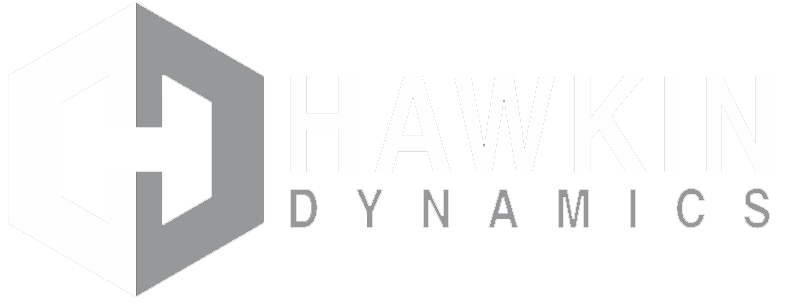What I learned From Being an Intern
(by Natalie Skene)
“What comes next?” This is the dreaded question that plagues some senior Kinesiology students’ minds as they enter their final year. It’s at this time in our academic journey that we must commit to establishing our futures. This can be a very scary and difficult moment for us since we’re still discovering our passions, maturing, and figuring out which direction we want our life to head towards.
When I originally applied to study Kinesiology, it was my goal to work in rehabilitation. It fit so well with my love of helping others achieve their goals and my passion for studying body mechanics. I dove into doing volunteer work and internships in various clinics, but it never clicked. It never felt like a career path I could fully commit to, but at the time it seemed to be my only option. I kept pushing through hoping that one day it would feel right that rehabilitation would be my career, but it never did. As my last volunteer opportunity came to an end, I felt somewhat defeated. Then, when I was in an Advanced Strength & Conditioning course something clicked. From an early age, I had always loved being involved in athletics and working to improve and be better in any sport and this course opened my eyes to another interesting possibility.
As my 420-hour internship approached, I knew that strength & conditioning was the route I wanted to explore. So, to ensure that I obtained the best experience possible, I spent long nights researching all the best opportunities in the strength & conditioning realm. Many weeks passed with little to no success, but I still continued applying with different Canadian Sports Institutes, and facilities such as Athlete’s Zone, Prototype Athlete, and more. I wasn’t going to quit because I knew this was my future. Then, the exciting day came, and I received an invitation to intern at the Canadian Sport Institute Atlantic (CSIA). Even though this opportunity brought me to a new province for three months, I knew it would be worth it after researching their credible strength & conditioning crew and I was excited about this new adventure.
Fast forward a few months and I am packing up my belongings to move from Ontario to Nova Scotia for my new placement – away from all my loved ones to a city I have never seen. Excited for a new adventure, I arrived three days prior to my first day to settle in and explore the city. When I arrived, a sense of imposter-syndrome kicked in and a lot of uncertainty, especially alone in this new city. Finally, my first day at CSIA came and I arrived at the office to meet the first athlete I would be shadowing who was Ellie Black, 3-time Olympian and gymnastics expert.
Now, as my internship comes to an end, I will highlight my takeaways from this incredible experience.
1. Take the time to focus and commit fully to your internship.
As you may know, the day-to-day routine of a strength & conditioning coach can be very unpredictable and does not usually follow your standard 9am to 5pm schedule. Choosing to move to a different province allowed me to have the flexibility to focus and be able to partake and absorb everything thrown my way. This allowed me to participate in every unique opportunity such as assisting in various fitness assessment protocols, ongoing learning sessions with fellow strength coaches across Eastern Canada, and the opportunity to see some of the athletes compete in their sport. All of this ultimately provided an overview of the athletes’ strength & conditioning experiences and how it impacts performance.
2. Accept your mistakes as a learning opportunity.
“Fall down seven times, stand up eight.” It is completely natural to make mistakes, especially in an internship that is meant for learning. At CSIA, all the coaches were understanding when I made mistakes, as they wanted me to take initiative and try again.
You are there to learn and there is no better way to learn than by real-world experience. On that note, being coachable is definitely an asset to being successful in your internship. It is also important to not be too hard on yourself when you don’t get it right the first time (or sometimes the second!).
All the coaches have been there themselves and most of them remember those days very well. For example, while assisting with countermovement jump (CMJ) monitoring for one of the teams, I was so focused on the iPad that I didn’t check the athlete’s setup. Therefore, the athlete had jumped without their hands on their hips, resulting in an unrealistic personal best CMJ. Since the coach took three samples of each athlete’s CMJ, it was easy for the coach to delete the faulty input and use the other two jumps the athlete completed that day for their monitoring. Most importantly, this taught me how crucial it is to monitor setup and always re-iterate the rules of the testing to ensure consistency of results, even if the testing is completed on a weekly basis by athletes. Further, my experience became a gentle reminder of why thoroughly completing measurements more than once for any test is highly desirable. These consistent measurements allow us to ensure the results are reliable and make sense for the athlete.
3. Learn about the other roles of an athlete’s success.
The strength & conditioning coach plays an important role in the success of an athlete but taking time to learn about the different aspects of these athletes’ integrated support team (IST) and their contributions. It puts into perspective how many hands are working toward optimizing athletic performance. Being able to learn from the physiotherapists, coaches, dietitians, sports analysts, and mental performance consultants was eye-opening. It underlines to me how successful teamwork changes the athlete’s experience.
4. Seek variation within your internship.
Being able to work with a wide variety of athletes and different sports gives you a great understanding of how a strength & conditioning coach caters to them specifically through programming and periodization to optimize their performance. There are many different sports that require special attention and working with a variety of athletes allows for the opportunity to view different return-to-play protocols coming from different injury mechanisms as well as how the coaches accommodate for different muscle imbalances.
There are always contributing factors of training age and the level of sport that come into play. Similarly, each strength & conditioning coach has a different background in education, in the sport itself, and in their coaching style. Being able to shadow and work with a large variety of coaches gives you an opportunity to see what works well, what caters to your personal philosophy and to understand how two different coaches will approach the same situation in their own way. Each coach at CSIA taught me something different that I will take home and use as I advance in my own career.
I truly believe that like any career, no matter the amount of experience a strength & conditioning coach has, there will always be the need for continuous learning especially as new research becomes published and technology advances. However, this internship not only provided me with an opportunity to practice the lessons we see in the classroom, but it also reassured me that this is the right path for me. These are the only things you can hope for following a successful internship.
With that, my final point is, if you are scared and confused about how to approach your first experience at any new workplace it is best to take the initiative and dive into the unknown because you will never know what is on the other side until you get there.
A huge thank you to all the staff at CSIA for welcoming me into their facilities with open arms and a special thank you to Scott Willgress for allowing me this opportunity and mentoring me along the way. I plan one day to give back to others as everyone here has for me.






